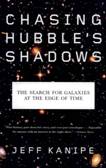Dr. Marsha Wolf, UW-Madison Astronomy Dept. research scientist, will talk about “Quasars, Black Holes and Galaxies: Which Came First?” (UWW Physics Dept.’s 4th Fall 2009 Whitewater Observatory Public Lecture) on Fri., Nov. 20, 8pm, 141 Upham Hall. Public viewing at the Whitewater Observatory will follow, weather permitting. Also enjoy Upham’s lobby exhibit, “From Earth to the Universe.”
ABSTRACT: As a result of research using telescopes such as the Hubble Space Telescope, we know that most galaxies contain a supermassive black hole whose mass is nearly a constant fraction of its galaxy’s mass. Quasars are supermassive black holes (SBHs) consuming matter at a prodigious rate and giving off light & radio waves in proportion to the matter consumed. Most SBHs in nearby galaxies are not quasars, and quasars as a group are quite distant — implying that a SBH’s quasar phase happens early in its galaxy’s life. Some scientists theorize that SBHs, while growing in their quasar phase, control the rate of growth in mass of their galaxies. If true, which came first: the galaxy feeding the SBH, or the supermassive black hole controlling the growth of the host galaxy?
 Related materials are available in Andersen Library! For example, a search of the HALCat library catalog would find titles such as Chasing Hubble’s Shadows (3rd-floor Main Collection, QB500.262 .K36 2006) and Bright galaxies, dark matters (3rd-floor Main Collection, QB857 .R83 1997). Searching the Library’s article databases, such as the Institute of Physics electronic journals, would find articles such as “Co-Evolution of Supermassive Black Hole and Host Galaxy From z ~ 1 TO z = 0” (The Astrophysical Journal, vol. 696, pp. 1051-1062, doi: 10.1088/0004-637X/696/1/1051).
Related materials are available in Andersen Library! For example, a search of the HALCat library catalog would find titles such as Chasing Hubble’s Shadows (3rd-floor Main Collection, QB500.262 .K36 2006) and Bright galaxies, dark matters (3rd-floor Main Collection, QB857 .R83 1997). Searching the Library’s article databases, such as the Institute of Physics electronic journals, would find articles such as “Co-Evolution of Supermassive Black Hole and Host Galaxy From z ~ 1 TO z = 0” (The Astrophysical Journal, vol. 696, pp. 1051-1062, doi: 10.1088/0004-637X/696/1/1051).
The European Space Agency’s web pages devoted to the Hubble Space Telescope include the page “Black holes, quasars, and active galaxies.” You also can learn more about the Hubble Space Telescope and its accomplishments and images from NASA’s web site.
Please ask a librarian for assistance with finding materials.

The University Library is a federal depository with many federal, state, local, and international documents on a variety of current and relevant issues available to you in print, microfiche, CD-ROM, and electronically. Come check out your government at the University Library!
